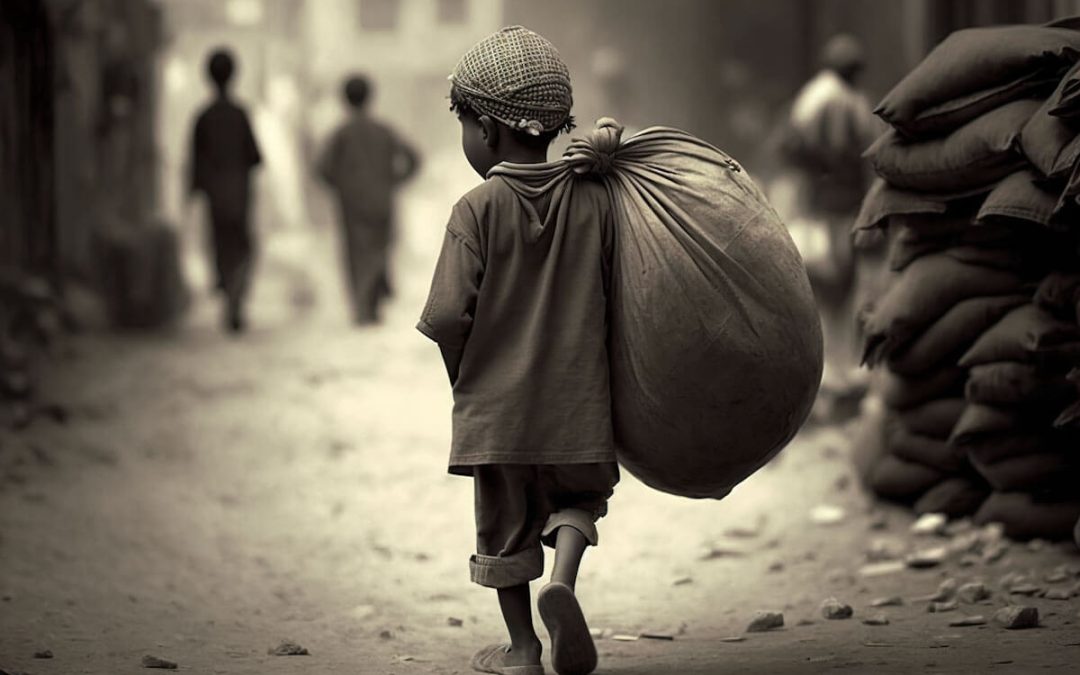While many of us may appreciate and understand the importance of formal education, we may not fully grasp the impact an education may have on a child at risk of manipulation and exploitation. It’s Day 9 of our 16 Days of Freedom campaign, and today, we will be looking at child labour, a form of modern slavery. More specifically, we will look at how access to education may mean the difference between freedom and a childhood of exploitation.
What is child labour?
“Child labour” falls under the umbrella term of modern-day slavery. The International Labour Organisation defines it as
“work that deprives children of their childhood, potential and dignity, and that is harmful to physical and mental development. It refers to work that:
- is mentally, physically, socially or morally dangerous and harmful to children; and or
- interferes with their schooling by depriving them of the opportunity to attend school; obliging them to leave school prematurely; or requiring them to attempt to combine school attendance with excessively long and heavy work.
There are, however, varying degrees of child labour. The worst forms involve children being enslaved, separated from their families, exposed to serious hazards and illnesses and left to fend for themselves on the streets of large cities – often at a very early age.
Unfortunately, describing work as child labour depends on the child’s age, the type of work, and the number of hours worked. It’s also reliant on the conditions the child was working under.
The United Nations estimates that 152 million children worldwide are in labour, with around 73 million children working in hazardous conditions. While you may have painted a picture of what child labour looks like, you’ve likely painted an incorrect picture. According to World Vision statistics, 53% of child labourers work in agriculture, primarily because of poverty and parents’ inability to find work.
But how could education possibly help?
The role of education
It is widely believed that educating children is the primary way to prevent them from becoming exploited in hard labour or slavery.
But how?
- Education provides freedom of choice. Children deserve to know they have options and that there is more than their current reality. Unfortunately, during COVID, many families felt they didn’t have other options and were forced to sell their children for food and shelter. One of the easiest ways to support educating vulnerable children is financially supporting organisations providing quality education.
- Raise awareness in your communities. Many of us are unaware of how our purchases and spending may contribute to child labourers, so we must bring up the need with our friends and family. Now, please don’t go around ruining Sunday brunches or family dinners, but primarily, as the holidays draw near, talking with our friends and family is a really simple way to play our part.
- Donate. If you have the means, donating to organisations fighting for children, advocating for stricter working laws and better working conditions, and helping provide quality and accessible education is a phenomenal way to fight against child labour.
There is hope
Modern-day slavery is a violation of human rights that society has ignored for far too long. We must put an end to it. There are 152 million young boys and girls forced to leave school to work in dangerous conditions. We cannot look the other way anymore. We can save millions of lives by forcing ourselves to get uncomfortable and addressing this global issue.
It requires us to educate ourselves and learn.
To sacrifice ease and convenience.
It requires active participation instead of sitting on the sidelines.
It requires all of us to work together.
This is how education can help fight against modern slavery.
Join Our Team
Help raise awareness and join our local volunteer team; contact us here.
Or, if you’d like to opt into our monthly newsletter, opt in here.
If you would like to support our work, you can donate here.
You can join our High Tea for Human Rights in Waterloo, Sydney, by clicking HERE.
You can Host your own High Tea by emailing [email protected], and we will send you information and a fact sheet to read or distribute to your guests.
THANK YOU FOR TAKING THE TIME TO READ OUR BLOG (Please review it or share it with others)

